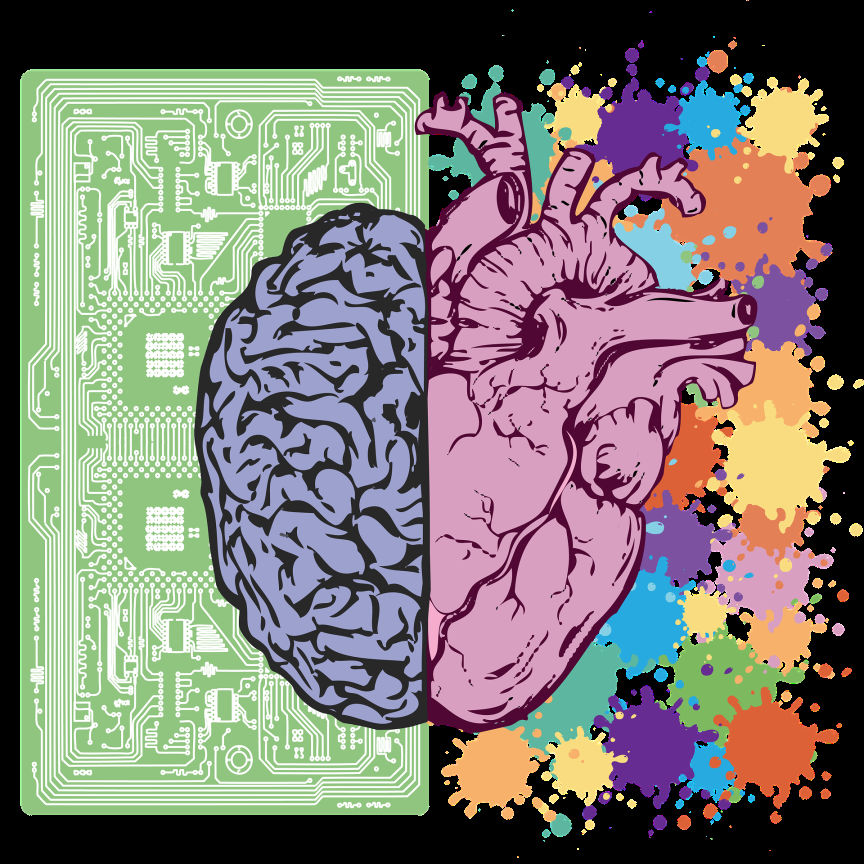PART I - MODULE 1
What is and what is not emotional intelligence?

What is and what is not emotional intelligence?

«Emotional intelligence refers to how well we handle ourselves in our relationships. It includes 4 domains:
Self-awareness: Knowing what we feel and why.
Self-management: handling your emotions in an effective way.
Empathy: Knowing what someone else is feeling/might feel.
Putting all these together in a relationship»
(Goleman, Daniel. «Emotional Intelligence. Why it can matter more than IQ». Ed. Bantam, 2006)
When talking about how intelligent a person is, we normally refer to or focus on IQ, the intelligence quotient, which measures «The whole of cognitive or intellectual abilities required to obtain knowledge, and to use that knowledge in a good way to solve problems that have a well described goal and structure.“ (Resing, Wilma and Drenth, Pieter. “Intelligentie: weten en meten”. Ed. Nieuwezijds b.v, 2007)
Not surprisingly, most of our education systems are focused mainly on IQ (intelectual intelligence) and not on EQ (Emotional intelligence), assuming that the highest the IQ is, the highest capacity of learning an individual has, thus of being successful.
However, can a person with a lower IQ be more sucessful (we refer only workwise here) than a person with a higher one? Depending of their EQs, the answer is DEFINITIVELY YES!
In fact, according to some research (Daniel Goleman), it seems that IQ is after 20% of success factors, whereas EQ is after the rest 80%.
IQ:
Visual and spatial processing
Knowledge of the world
Fluid reasoning
Working memory and short-term memory
Quantitative reasoning
EQ:
Self-awareness
Self-management
Empathy
Use of these for social relations management (communication, motivation, understanding, negotiation…)
This animation shows in an ilustrative way what we have explained, in only 8 minutes!
We´ve said that, according to Goleman, emotional intelligence can be divided in 3 competences:
Self-awareness
Self-management
Empathy
Latest trends in psychology and human resources have added 2 other competences considered very important for a social inteligent person:
Motivation
Social skills (which include communication, cooperation, leadership…).
As emotional intelligence is broken down to competences, in order to increase our EQ, we should try to develop all of the competences related to it, insisting especially on those we think they are in need of more improvement.
Competences addressed:
Self-awareness, motivation
Learning outcomes:
You will be able to recognise your own values.
You will be able to prioritise your values.
You will be able to identify what motivates you.
Methodology:
Self-reflection. Values circle
Why this activity is important?
A person is more willing to put effort on something if this is connected to an important personal value.
Description of the activity
Identify your values. You can do it by asking yourself questions such as: what is the most important in your life? What do you enjoy to do in your free time? Think of a situation that makes you happy and another that makes you unhappy. What are the qualities you value most in a person?
For each answer to those or other questions, try to summarise in a word so you will fin a value. For example, if what you enjoy doing in your free time is going out with friends, friendship is one of your values.
When you have your list, draw a circle and divide it into sector. Assign a bigger section to those values which are more important in your life.
You will identify, very graphically what is important for your and therefore you can find what motivates you to do things and you will have a tool when making a decision asking you these questions: Is this in line with my values? How does it help me to fulfil them?
Here you will find a list of possible values, so it will be easier for you to identify and define your own. But please, add any value which is not in the list but it´s important to you!
Competences addressed:
Self-awareness, self-management
Learning outcomes:
You will be able to recognise which situations stress you.
You will be able to identify which emotions produce in you a stressful situation and how to shift the focus towards positive aspects.
Methodology:
Self-reflection, mindfulness and visualization. You can practice with a friend, a classmate or a family member.
Why this activity is important?
Recognising what stresses us helps to react when an unexpected situation happens, minimising the impact and helping us focus and what we can do and how we can do it.
Description of the activity
Visualize a situation that produces stress in you (or ask your friend to represent a situation that stresses you). For example, imagine you have a surprise exam next day.
Identify your first thoughts and the emotions you feel (anxiety? fear? anger?...).
Now take some time and breath deeply for 5 times. Don´t think of anything in this moment, just focus on your breath. This produces relaxation, decreases blood preasure and will help you think with clarity and objectivity.
Change what you think of the situation. For instance, instead of thinking of a surprise exam like a threat, try to think of it as opportunity. Instead of thinking of it as a punishment, think how good you will feel if you pass and how proud you will be of the new things learnt. Try to visualize yourself being successful. This will help you to focus on the result.
Focus on what you can do and how you can do it to overcome this situation. In this case, what you need to study? What is more important? How much time do you have? Where should you focus more? Then trace a plan and follow it!
Until this point, the activities proposed have been focused on self-awareness, self-management and motivation. Those are competences where you need to look inside yourself in order to develop them. Therefore, the activities are defined from an introspective point of view.
To develop empathy and social skills require, on the contrary, work with others. The focus this time is not on ourselves but in others´ world. How do they react? How do we think they feel? And how should we respond in exchange?
With the next activity, we are giving you a tool to practice your empathy and social skills. As for these ones, as they include a number of skills such as cooperation, leadership, teamwork… we are focusing on the most important one to master: active listening. If you don´t master this one, it is difficult you will get any of the others!
And what is active listening? We can define it as full concentration on what a person says/tells, paying attention not only to verbal communication but also to non verbal communication, such as the tone of voice, gestures or facial expressions.
You can take a look at THE VIDEO BELOW for a clearer idea of active listening:
Competences addressed:
Empathy, active listening
Learning outcomes:
You will be able to recognise emotions in others and adapt your behaviour in consequence.
You will be able to actively take part in a conversation, understanding others 'arguments.
You will be able to learn while listening to others.
Methodology:
Conversation, identification of verbal and non verbal communication. To be done in pairs.
Why this activity is important?
Listening is probably the most important skill you can develop, as it will help you to learn, understand and self-reflect. Every time you talk to someone you have the opportunity to learn something else about others and about yourself.
Description of the activity
Tell your partner to choose a topic he/she likes or to tell you a situation he/she would like to share with you.
You will practice how to be present in the conversation and adopt and active role. To do this, try to make open questions (how did you manage? How did you feel? Why do you think it happened?...). This way, the person will be forced to think and to give you more information that will enable you to understand better.
During this exercise, take notes of the non verbal behaviour. For example, if the person smiles and when does he/she does it (while mentioning something in particular?), if the person looks sad, or angry, or doubtful and what does he/she say that gives him/her this reaction. Obviously in a normal conversation you don´t take notes, but during the exercise is OK to do it to force yourself to pay attention to these details until it comes naturally.
When the conversation is over, summarise what you heard to the other person, explaining what you think was more important in the conversation according to his/her verbal and not verbal communication.
Check with him/her if your conclusions are OK and how he/she felt with your listening.
Want to know why? Check out the VIDEO BELOW!
Venting your anger with the whole world because you don´t like a situation is not going to help to solve it. Try instead to breath, relax and think what you can do and what you cannot do!



Feeling like you've already improved your EQ? Take this test and check it out!
The European Commission support for the production of this publication does not constitute an endorsement of the contents which reflects the views only of the authors, and the Commission cannot be held responsible for any use which may be made of the information contained therein.
